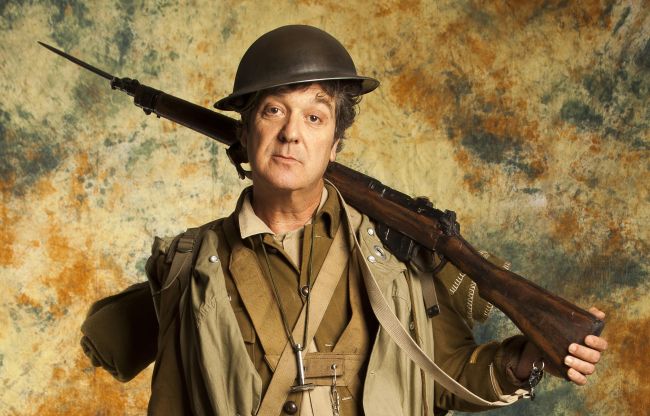
The Good Soldier Svejk is a beguiling anti-war story, full of humor, currently showing in a stage adaptation co-produced by Habima National Theatre and Haifa Theatre. Set in the Austro-Hungarian empire of the early 20th century, Yeruslav Hašek’s (1883 – 1923) best known, and unfinished work – was intended to be a six volume novel recounting the adventures of Svejk during World War I. Hašek completed only three volumes, leaving a fourth unfinished at the time of his early demise, yet his legacy has left a profound impact on the genre of anti-war writing, perhaps the first since Aristophanes (Lysistrata) to engage so seriously with comedy. Svejk is a brilliantly subversive character, brimming with stories and bumbling from one disaster to another, yet one can never be certain whether his self-proclaimed idiocy and near-fatal penchant for storytelling is the mark of a lucky dim-wit, or the good cover story of a survivor.
Hašek’s own adventures were remarkably colorful, and very likely provided ample material for Svejk. The biographical details match the fiction in the most unlikely circumstances.Hašek was born into poverty in Prague (then part of the Austro-Hungarian Empire, now the Czech Repulic), with an alcoholic father who died when he was thirteen. Working as a freelance writer, he also did stints as a bank clerk and, just like Svejk, as a dog salesman. In the years preceding the war Hašek was closely monitored for his anarchist activities, and was arrested several times, including a stint in prison. Drafted at the outbreak of WWI, he was captured by the Russians, caught typhus, and later volunteered to join Czechoslovak Brigade fighting against the Austro-Hungarian empire, there he held various positions as clerk, journalist, soldier and recruitment agent. Just as Hašek’s experiences and frustrations with oppressive government, bureaucracy and the absurdities of military rules inspired the character and adventures of Svejk, I feel fairly certain that were it not for Svejk, we would not have had the pleasure of meeting Yossarian and his companions in Joseph Heller’s Catch 22.
The Habima National Theatre and Haifa Theatre co-production of The Good Soldier Svejk, was adapted to the stage by Yosef El-Dror and directed by Moshe Naor. Avi Kushnir stars as Svejk, and is very endearing and amusing in the role, generating much laughter from the audience. When he’s drafted, he accepts his fate happily, and sets out willingly, in a wheelchair, because of his rheumatic knees, for after all, as Svejk says: “Cannon fodder can be cannon fodder when sitting down, too.”
It is that kind of ingenuous statement that defines Svejk’s grip on the imagination: one can never be entirely certain whether he intends to provoke or whether he really is an innocent fool, a sweet puppy in need of care and protection. Yet I felt that such moments were far and few in a production that seemed to go for laughs (and get them), rather than a coherent message. Between Svejk and Kushnir, one is pretty much guaranteed a pleasant evening, yet I felt that this interpretation lacked the necessary edge, the twist of the pointed word in the gut that you feel as you laugh, because at some point, if we’re talking about war, I need to feel that it is not funny, not funny at all.
The Good Soldier Svejk by Yeruslav Hašek
Adaptation by Yosef El-Dror; Directed by Moshe Naor; Scenery Design: Eran Atzmon; Costume Design: Ofra Confino; Composer: Ori Vidslavski; Lighting Design: Meir Alon; Cast: Avi Kushnir, Nati Ravitz, Shimon Cohen, Gassan Abbas, Uri Hochman, Nevo Kimhi, Ami Smolarchik, Jil Ben David, Kobi Maor, Shmulik Cohen, Itzik Cohen, Doron Amit, Riki Blich, Davit Gavish/Irit Benedek, the dog “Kiki” – Rexi, the dog “Max” – Max.





